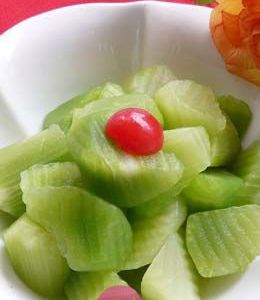To resist the cold can not rely on vitamins, but can not mistakenly believe that supplementing vitamins can not fear the cold. In fact, these two nutrients only slightly improve the body's ability to withstand cold, at best, can only reduce the human tolerable cold temperature by 3 to 4°C. Therefore, it is still necessary to prepare all kinds of cold in the winter.
The study found that vitamin B2 and vitamin E have a role in helping the body to resist cold and can enhance the body's ability to adapt to cold conditions. Simply adding vitamin B2 can reduce the tolerable cold temperature by 2 to 3°C.
In general, frostbite may occur at minus 5 to 6°C, but frostbite does not occur until minus 7 to 9°C after vitamin B2 supplementation. If you can give your child vitamin B2 and vitamin E at the same time, the ability to withstand the cold is stronger. In addition, vitamin B2 and vitamin E have other effects in the body. Such as vitamin E can clear the body's oxygen free radicals, with enhanced body resistance, improve blood circulation, prevention of cardiovascular disease and other effects. In the cold winter, adequate supplemental vitamin B2 and vitamin E can not only help protect against cold, but also prevent and reduce many diseases induced by cold.
Vitamin E-rich foods

Wheat germ oil, cottonseed oil, corn oil, peanut oil, sesame oil, lettuce leaves and citrus peel are also very rich in content, almost all green leafy vegetables have vitamin E; milk, eggs and cod liver oil also have a certain amount of vitamin E; Animal foods such as meat and fish, and vitamin E content of fruits and other non-green leafy vegetables are rare.
Vitamin B2 rich foods
Dairy products are the best source of vitamin B2, especially in various cheeses and yogurts. For children who do not like dairy products, they can eat more eggs, fruits, green leafy vegetables, beans, nuts, animal organs, poultry, whole wheat bread and cereals. When necessary, vitamin B2 and vitamin E preparations can be properly supplemented.
Finally, to remind parents: to resist the cold can not rely on vitamins, but also can not mistakenly believe that vitamin supplements can fear the cold. In fact, these two nutrients only slightly improve the body's ability to withstand cold, at best, can only reduce the human tolerable cold temperature by 3 to 4°C. Therefore, it is still necessary to prepare for various cold preservation in the winter, such as adding more energy, appropriate supplements, reducing outdoor activities, and avoiding cold stimulation.
Four misunderstandings of winter baby feeding
Misunderstanding 1: The more you eat, the healthier
One or more overfeeding causes the infant's gastrointestinal tract to be overloaded, resulting in digestive and malabsorption of the food in the gastrointestinal tract, which can easily cause overeating diarrhea.
Suggestion: Infant feeding should pay attention to total intake, and more importantly, attention should be paid to nutritional balance.
Myth two: stop breastfeeding prematurely
There are a wide variety of high-quality substitutes available on the market. Parents should understand that even the best milk replacer does not meet the standard of nutrition contained in breast milk.
Recommendation: Promote breast-feeding 4-6 months, breast milk contains a variety of immune components, is the baby's ideal natural food.
Misunderstanding 3: Fresh milk is better than milk powder
Fresh milk contains too much casein and more volatile fatty acids, which can cause intestinal irritation and indigestion. In fact, some of the main reasons milk powder can cause dry stools are: The palm oil added to milk powder is easily combined with calcium in the intestinal tract to form insoluble calcium that is difficult to absorb, affecting calcium absorption and causing difficulty in defecation.
Recommendation: Avoid direct feeding with fresh milk. If you are concerned about the baby's milk powder lit, you can use formula of refined vegetable oil.
Myth 4: Feed your baby's chewed food
Some parents think that their baby's gastrointestinal function is not yet mature, so they think that it is easier to digest and absorb chewed food for babies.
Correction: The human oral cavity itself is a multi-bacterial environment, and infants and young children are given chewed foods, and it is easy to pass the bacteria in the adult oral cavity to infants and young children.
LED Glass tubes T8,Luminaire LED T8,High Output LED Glass Tube
Ningbo Wellway Optoelectronic Technology Co.,Ltd , https://www.wellwayopto.com